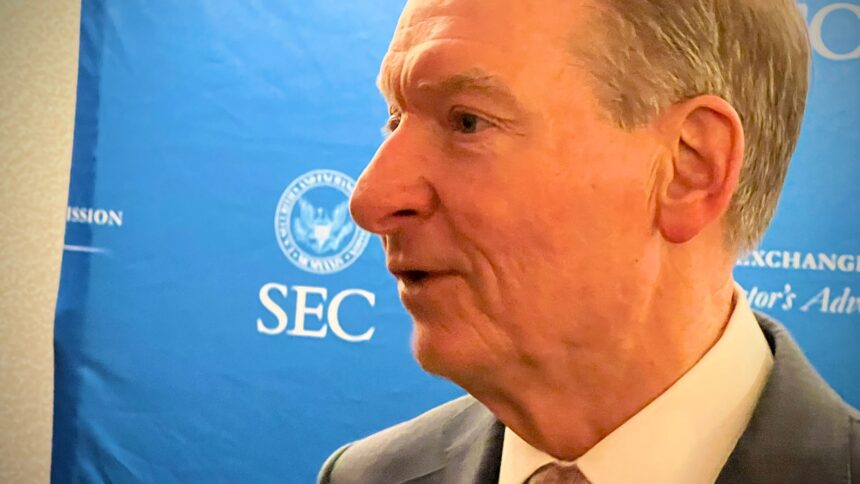Securities and Exchange Commission Chairman Paul Atkins has unveiled a comprehensive policy agenda focused heavily on the cryptocurrency sector, which he describes as a “new day” for this burgeoning market. This announcement, made public on Thursday, outlines potential rule proposals aimed at clarifying the regulatory framework surrounding the offer and sale of crypto assets. Atkins emphasizes the importance of providing greater market certainty, stating, “A key priority of my chairmanship is clear rules of the road for the issuance, custody, and trading of crypto assets while continuing to discourage bad actors from violating the law.”
In addition to the focus on crypto assets, the agenda also signals a broader campaign to relax existing constraints on securities firms and reevaluate the “consolidated audit trail” system designed to track U.S. securities transactions in real time. This initiative reflects a cautious yet progressive shift from an agency that has traditionally been skeptical about imposing new regulations. Digital assets, as highlighted in the agenda, represent a key area of new regulation under this leadership.
Atkins’s plan includes an ambitious timeline, with proposals for rules on the offer and sale of crypto assets expected by April. These rules will encompass exemptions and safe harbors, as well as changes to the Securities Exchange Act to facilitate the trading of digital assets on alternative trading systems (ATS) and national securities exchanges.
Federal regulators commonly release such agendas for public scrutiny, although the timelines are not always adhered to strictly; nonetheless, they provide an important indicator of policy direction. Notably, prior to establishing specific crypto regulations, the SEC, together with the Commodity Futures Trading Commission (CFTC), issued a joint statement emphasizing that registered platforms are equipped to handle spot crypto trading and should seek clarity on best practices.
Atkins, who has previously advised crypto firms, is leading an initiative called “Project Crypto,” designed to help the industry transition into mainstream finance. In parallel, the CFTC is engaging in what Acting Chairman Caroline Pham refers to as a “crypto sprint” to accelerate this same objective. Both regulatory bodies have expressed urgency in their efforts, aligning with expectations from the highest levels of government to position the U.S. as a global leader in cryptocurrency technology.






